Nektar | Interview | Roye Albrighton
Nektar, a pioneering band in progressive rock, emerged from humble beginnings with a sound that pushed boundaries and captivated audiences across Europe and beyond. Their journey, marked by innovative albums like ‘Journey to the Centre of the Eye’ and ‘Remember the Future,’ showcased their ability to blend intricate musicality with imaginative storytelling.
Over decades of touring and recording, Nektar’s evolution from psychedelic roots to symphonic masterpieces has left an indelible mark on the genre, celebrated by fans old and new for their enduring creativity and uncompromising vision.
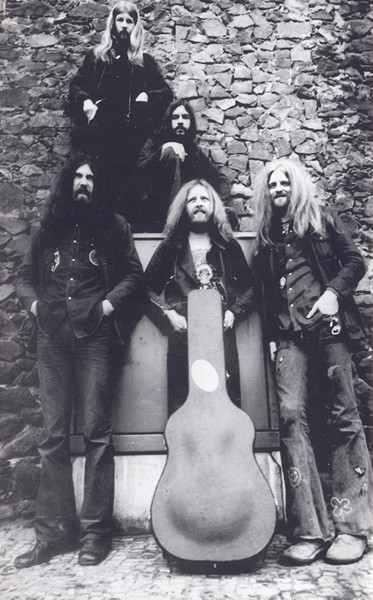
“What would happen if the oceans were spiked with LSD”
It’s a great pleasure talking with you about your music! First, I would like to ask where you were born and what you can tell me about some of the influences from your childhood and teenage years…
Roye Albrighton: Hi Klemen, the pleasure is all mine. I was born in Coventry in the West Midlands, UK, not far from Birmingham. Most of what I listened to while growing up has been forgotten in the sands of time; however, a few you may recognize include The Ventures, the Spotniks, and of course, the Shadows. I hold Hank Marvin in high regard as one of the world’s great guitar influences.
You started your career in a band called The Peeps and released a few singles. Later, you were part of Rainbows and then joined Outsiders. Please tell us about your first bands…
The Peeps and Rainbows were essentially the same band, with the exception of the drummer and keys player. Martin Cure and I were the two remaining members from The Peeps when we changed our name and musical direction. It was around this time that I began writing my own material and incorporated it into Rainbows.
When Rainbows disbanded, I moved to Sweden where I reconnected with an old promoter from our time touring there. He introduced me to a band called The Outsiders, with whom I played until returning to the UK.
Nektar was formed in Hamburg. How did you guys come together?
By chance, while walking around Hamburg during the day while Rainbows were playing at the Top Ten Club, I heard a drummer rehearsing alone at the Star Club. During the day, most clubs were closed for cleaning and preparation for the evening, providing a perfect opportunity for artists to practice.
I looked into the club and met Ron Howden, and we hit it off immediately. The next day, I brought my guitar, and we played together. This led me to move to Hamburg and become a member of the as-yet-unnamed Nektar in 1969.
‘Journey to the Centre of the Eye’ is your debut album. What are some of your strongest memories from producing and releasing this LP? It was produced by Dieter Dierks…
Actually, it was produced by Nektar and Peter Hauke, and was recorded at Dieter Dierks’ studio in Stommeln, engineered by Dieter himself.
I think one of my strongest memories of this album was that it seemed at the time that it might have been a little too far out for some people. But hey, what the hell! We just went ahead and did what we wanted and threw caution to the wind.
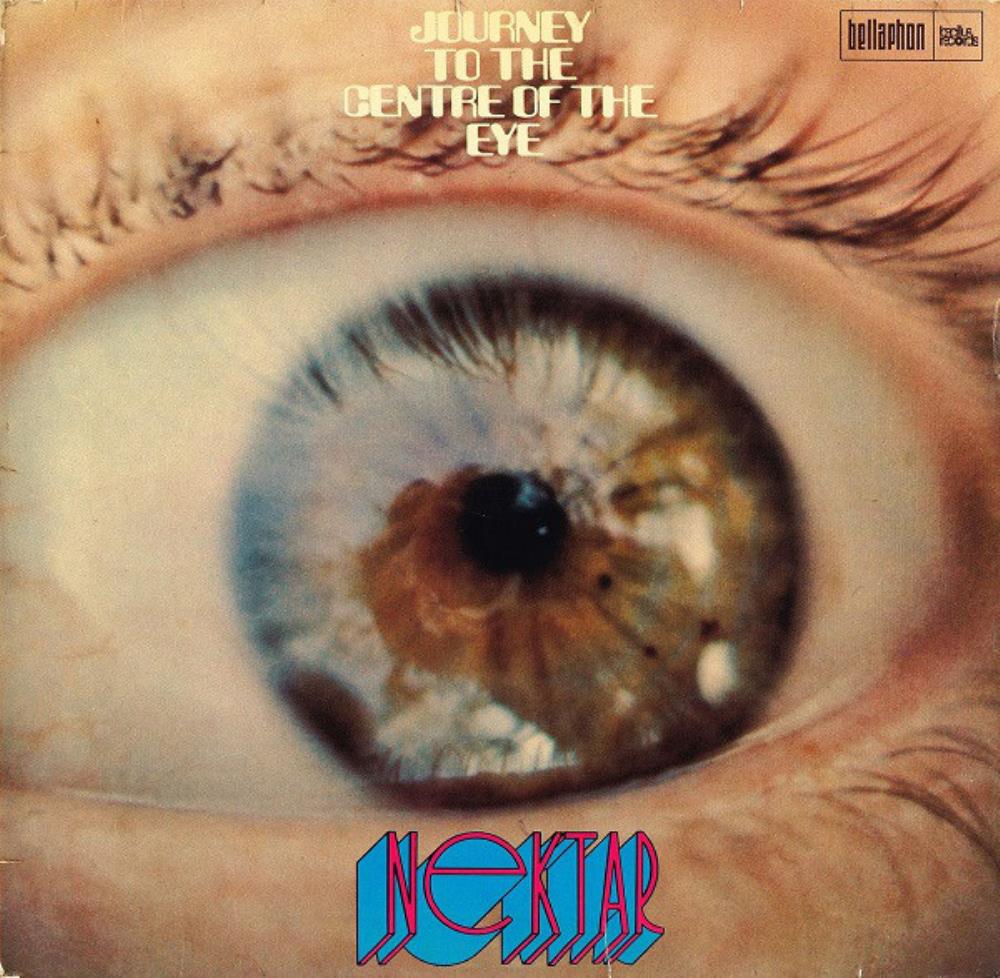
What would you say is the concept behind the album?
Many things can be taken from this album and can be associated with many situations in a person’s life. However, the overall concept would be using your mind’s eye to look inside yourself and see the real person within.
What gear did you guys use?
As you can imagine, in those days there weren’t many effect pedals or synthesizers around. The Mellotron was still a new toy, so we used what we had to create effects.
For instance, we would turn the Hammond motor off and on to create the whining sound you sometimes hear. I would use slide guitar and repeat echo for some parts, and even strike the strings behind the bridge for an effect. Mo Moore used a tremolo pedal and fuzz box on the bass.
Basically, we used anything we could get out of the instruments.
How did you come in contact with Bacillus?
We were originally signed to Bacillus Records because they were really the only label that showed any interest in what we offered. As I said, ‘Journey’ wasn’t everyone’s cup of tea. Peter Hauke later sold the label to Bellaphon Records.
I’m not sure exactly how the contact with Bacillus came about. I think it was at a concert somewhere, but I may be wrong.
Then you started recording ‘A Tab in the Ocean.’ What is the story behind that release?
We had our own house nestled in the hillside of the Bergstrasse in a village called Seeheim, where most of our writing and rehearsing was done in the early days.
We didn’t have much furniture back then, just a coffee table, a couple of chairs, and a huge fish tank inherited from the previous occupant. We used to spend a lot of time during the day just talking about music. One day, someone made a joke about what would happen if the oceans were spiked with LSD. After the laughter died down, we realized we had a title for the new album, as the beginning sounded a little oceanic with the riff and effects being used.
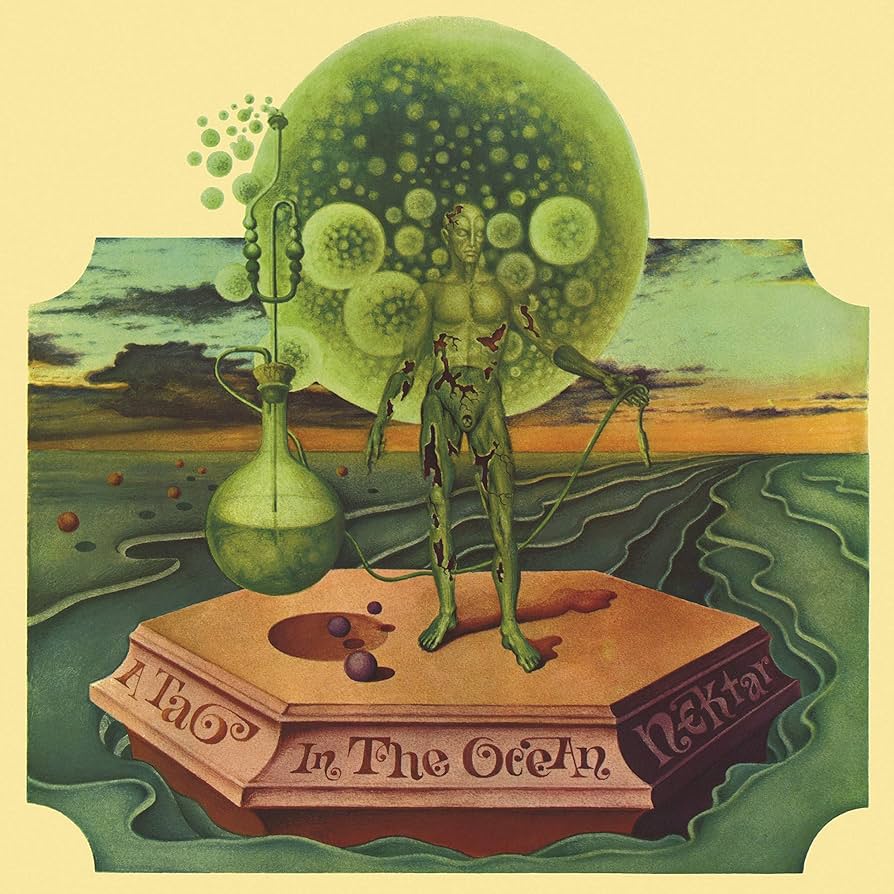
Your third album called ‘…Sounds Like This’ is more hard rock oriented, don’t you think?
I agree. It was Nektar in the raw. We were often told that while the albums were well-presented productions with a lot more polish, the real essence of the band lay in the “live” performance. So, we decided to dedicate an entire double album to this and play all the pieces we had collected over the first few years of our time together.
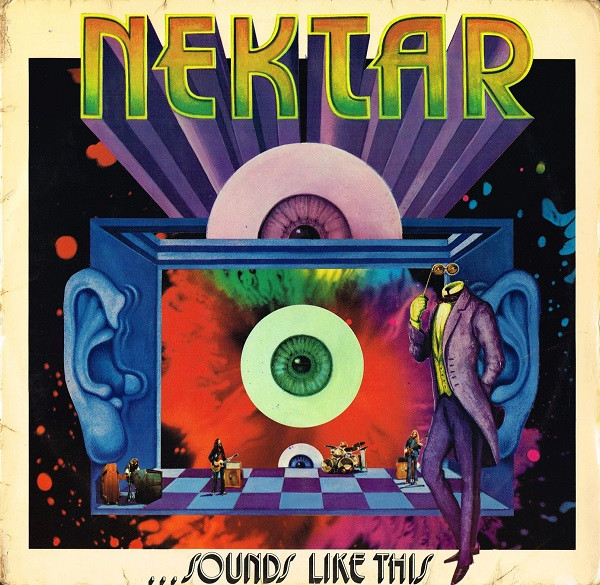
‘Remember the Future’ was released in 1973. I always preferred side one on this album. It’s so amazing… What did you have in mind while recording this album?
Not much, really. For us, it was just going to the studio and recording another album. But something happened in the studio—something magical. It seemed to take on a life of its own and became an obsession for the band. I tend to agree with you that side 1 was the better side.
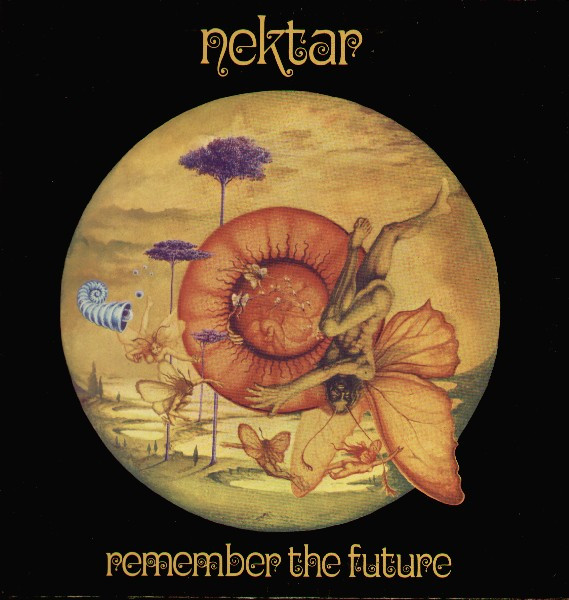
Then you released a couple more albums, including ‘Down to Earth’ and one of your best releases titled ‘Recycled,’ which is a symphonic masterpiece in my opinion. What can you say about it?
‘Down to Earth’ was a definite change in direction. I really enjoyed making it, although looking back, I feel the production sounded very clinical and not the usual Nektar sound. That’s not to say I didn’t like the songs, but they could have been treated differently.
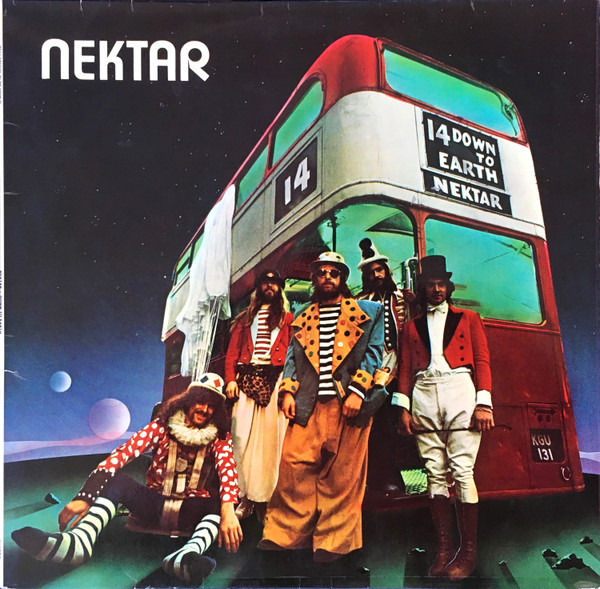
However, I feel we made up for it with ‘Recycled.’ To this day, this is my most favorite album. Performing side one in concert is a joy; the finale at the end of side one still gives me chills.
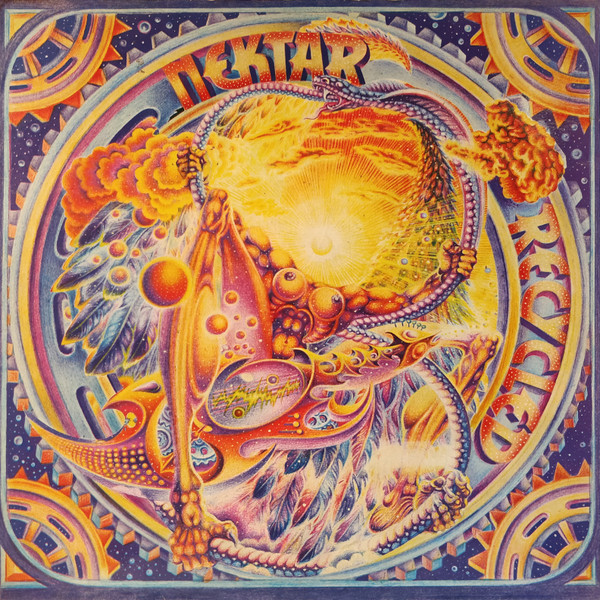
Where all did you tour, and what are some great memories from touring?
During the early years when Nektar was gaining ground in Europe, we played a lot of shows—too many, in fact. At one point, we made ourselves ill with all the traveling. You must remember that luxury sleeper tour buses were not readily available at that time, or if they were, they were cost-prohibitive. Rock musicians were not the clientele that bus companies wanted on their super coaches.
I think my greatest memory was the two nights we played in St. Louis at the Civic Auditorium and the simulcast evening in NYC.
After all these years, you are still very active, and your latest two releases are ‘Book of Days’ and ‘Fortyfied.’ Could you tell us something about the background of these two releases?
After a break in the band’s release schedule, I brought on a new bassist and keyboard player. There was some confusion about how the band sounded with two new players, so to demonstrate our strength, I decided to release a ‘live’ album featuring the new lineup. To celebrate 40 years of Nektar, I released ‘Fortyfied’.
‘Book of Days’ was intended to be the new album in demo format. It was supposed to be re-recorded, but we encountered severe problems with our management, and it ended up being released in demo format instead. Some tracks from ‘Book of Days’ can also be heard performed on ‘Fortyfied.’
Maybe further down the road, we will re-record that album with the full band.
What are some of your future plans?
In a few months, Nektar will be releasing an album called ‘A Spoonful of Time.’ This will be an album of cover songs that have been Nektarized to some extent. We had the opportunity to collaborate with musicians like Rick Wakeman, John Wetton, Ginger Baker, and many more, who have put their own touches on it.
We are also working on a new DVD recorded at the Key Club in LA.
This year will also see the finalization of Nektar’s new album ‘Juggernaut,’ which had to be delayed due to other commitments.
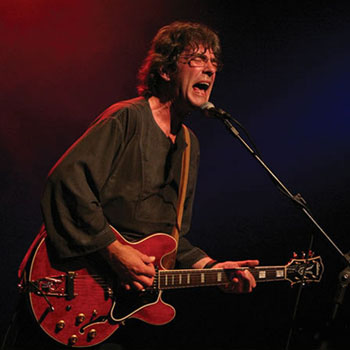
Thank you very much for your time! Would you like to send a message to all your fans and readers of It’s Psychedelic Baby Magazine?
To those who know Nektar and have followed us, I want to express my heartfelt thanks for your support. For those who are new to our music, a warm hello.
The band and I would like to extend a big thank you to all of you for keeping this great music genre alive.
Hope to see you on the road soon!
Oh, and thank you, PBM, for this interview.
Klemen Breznikar
All photo materials are copyrighted by their respective copyright owners, and are subject to use for INFORMATIONAL PURPOSES ONLY!
Nektar Official Website

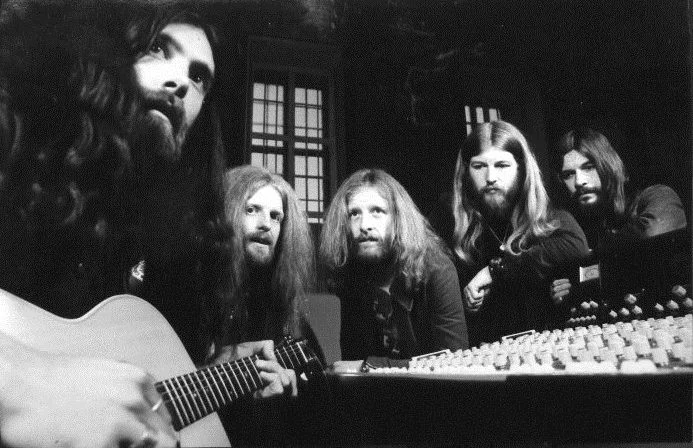
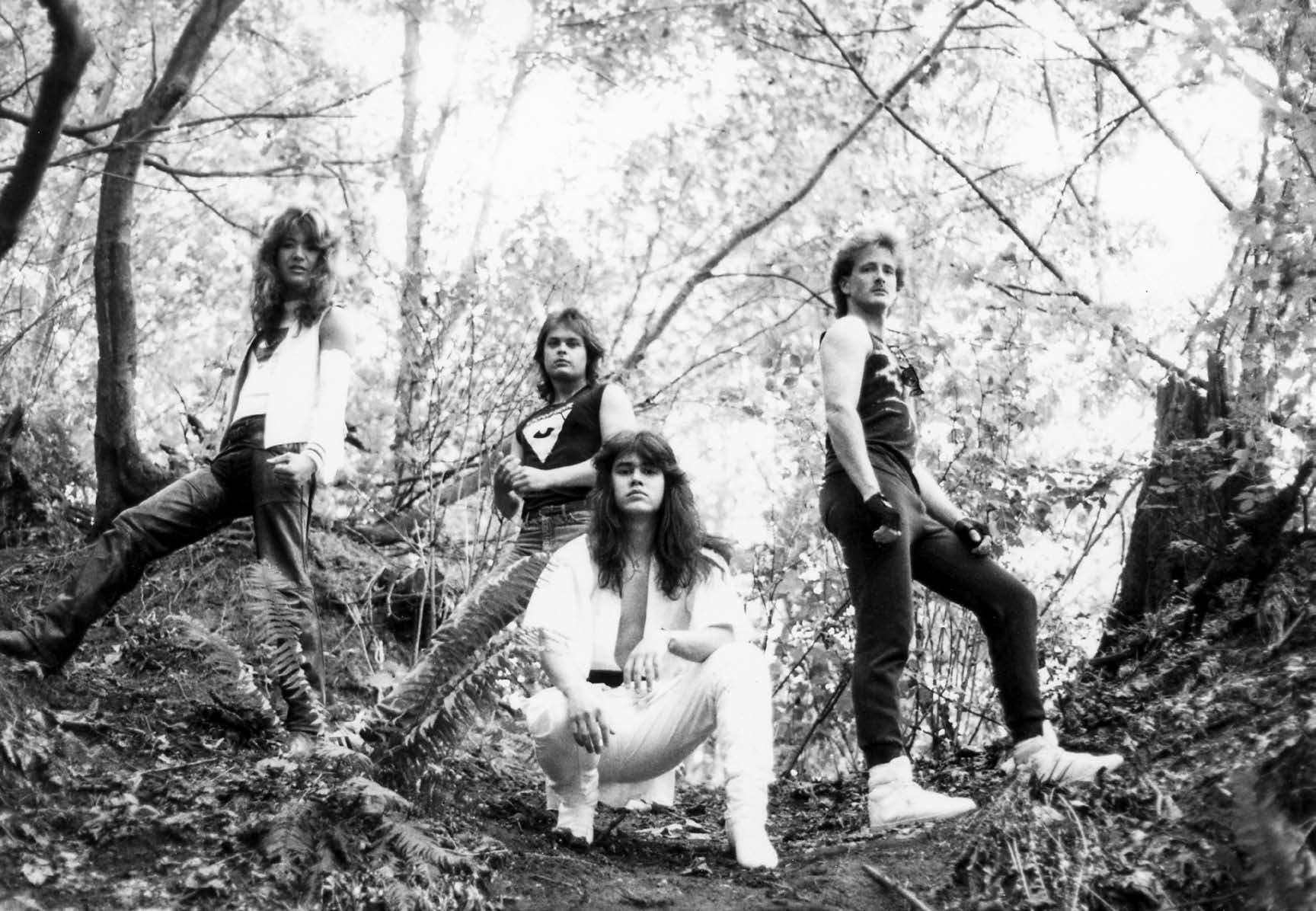


Thanks for this interview. I am a huge Nektar fan. I probably go against the grain in that my favorite Nektar album is Down to Earth. It's not that much of a progressive rock album, but it is a truly great rock album IMHO. I totally disagree with Albrighton about the production on this one. I think the album's got a great sound.
Such a great interview as always! Thank you Klemen!